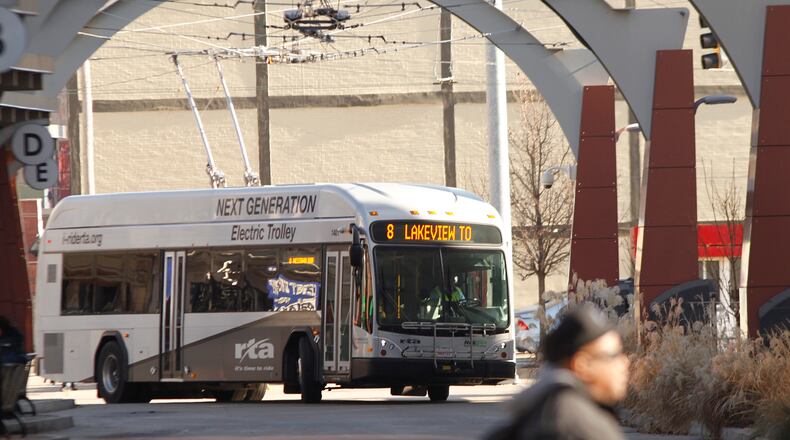LATEST: Union negotiators arrive in Dayton as lawmakers urge RTA contract
The situation is “tough,” said Doug Anspach, a labor attorney at Taft Stettinius & Hollister in Dayton who does not represent either party.
MORE: DPS, Sinclair weigh in on possible Dayton RTA strike
“Usually when the mediation is successful, it’s in situations where the parties haven’t put their full proposal on the table,” Anspach said. “Or they’re looking for one last get from either side, but in a situation where there are deal breakers, and if they are legitimate deal breakers, it’s much less likely to get a resolution.”
Union leaders said they will either leave the meeting with a contract promising increased pay and lower insurance costs or an agreement to enter binding arbitration — something RTA has rejected. ATU Local 1385 President Glenn Salyer said without one of those outcomes, a strike will happen.
RTA CEO Mark Donaghy calls the union’s proposal an “absolute non-starter” that would drain the agency of $3 million in additional costs.
WHO WILL SUFFER? 5 groups brace for Dayton RTA strike
Local 1385 represents about 75 percent of the RTA workforce. These members are fixed-route and Project Mobility drivers, mechanics, building and grounds personnel, utility cleaners, janitors and line crew personnel, according to RTA documents.
Issue No. 1: Increased and back pay
Union leaders say members have not had a raise since April 2014. The union argues members deserve back pay for 238,000 hours of overtime worked in 2015 and tens of thousands of hours of overtime worked in 2016.
In December, Salyer said members asked for a proposed 2 percent raise effective April 2015 and 2 percent raises for 2016 and 2017. A lump sum proposal from RTA, Salyer said in November, does not include retroactive pay he believes workers should earn for extended shifts.
DETAILS: RTA strike threatens disabled persons, hundreds of factory workers
RTA’s final offer includes 2 percent wage increase for three years in a new agreement, plus a 2 percent lump sum payment that employees could take in cash or deposit in their Health Savings Account representing contract year 2015, according to RTA documents. RTA said Project Mobility drivers would receive up to a 10.5 percent raise depending on service length.
Issue No. 2: Insurance costs
In November, Donaghy told the Dayton Daily News the RTA has to shift to a high-deductible plan because of several years of large volumes of expensive medical plans.
Salyer in November said under RTA’s proposed health insurance plan, employees with families would pay $4,472 in insurance premiums and also the first $5,000 in medical expenses before the plan contributes.
RTA calls Salyer’s numbers a “scare tactic,” noting it assumes all employees have family coverage and out-of-pocket medical costs exceeding the $5,000 deductible. RTA maintains Salyer doesn’t credit the Authority for contribution to the Health Savings Accounts and account tax savings.
Getting there: Binding arbitration?
ATU officials said the strike threat would immediately end if the parties enter binding arbitration - something RTA officials have flatly rejected as something that would jeopardize the agency’s authority to make decisions about the use of taxpayer money.
About the Author
